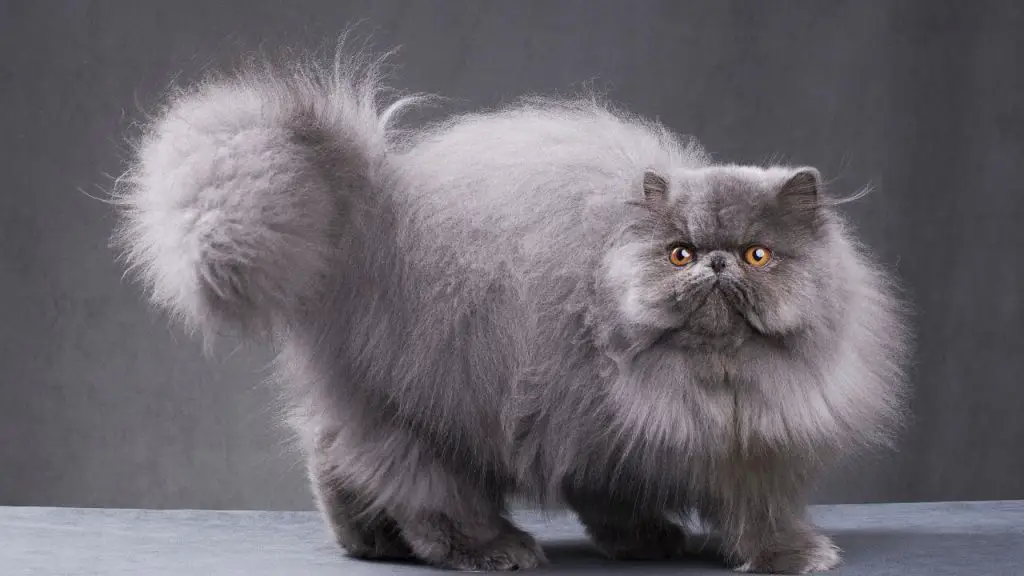Curious if a Persian cat is a suitable pet for you, but worried about allergies? You’re not the only one. Let’s see if Persian cats are hypoallergenic. You’ll be astonished by the truth!
Persian cats are known for their long hair and sweet personalities. But, many people ask: Are Persian cats hypoallergenic? Sadly, no. No cat is 100% hypoallergenic. All cats produce allergens from their saliva and skin oils.
So, if you are considering a Persian cat, think of any allergies you may have beforehand. Make sure to consider the potential risks associated with pet ownership.
What is Hypoallergenic?
The term ‘hypoallergenic’ is used a lot when it comes to pet allergies. It suggests that an animal may not cause allergic reactions in those with allergies. But, what does this mean for cats specifically?
The reality is that there is no such thing as a cat that does not produce any allergens. Traditional hypoallergenic cats are breeds that have been bred to potentially produce fewer allergens than other cats. Breeders choose specific breeds and lines that are believed to have some qualities that make them less likely to trigger allergies.
Unfortunately, genes play a role in this, and no cat can be said to be truly hypoallergenic. This includes ‘hypoallergenic’ Persian cats – there is no guarantee that any particular breed or type of cat will not cause allergies.
What Makes Persian Cats Not Hypoallergenic?
Persian cats are not actually hypoallergenic. Everyday activities, like brushing and playing, can cause the release of Fel d 1 into the environment. This protein is found in a cat’s saliva, skin secretions, fur, and urine and causes an allergic reaction in humans.
It has been suggested that some cats may produce less Fel d 1 protein. However, this variation won’t guarantee a reaction-free experience. Therefore, it is important to consider a Persian cat’s effects on allergies.
You cannot guarantee any breed of cat is 100 percent hypoallergenic. The only sure way to avoid an allergic reaction is not to own a cat!
Allergens Found in Persian Cats
Persian cats are not hypoallergenic. They shed the same dander which can cause an allergic reaction in people sensitive to pet hair, pollen, dust, mold, and mildew. Common allergens from Persian cats include:
- Proteins from their saliva – these are called Fel d 1 and can be spread via saliva when grooming or rubbing against objects. These particles can hang in the air for a long time.
- Proteins from their skin – when grooming or shaking their fur, these proteins can become airborne and trigger reactions like itching and sneezing.
- Proteins from their urine – these proteins can become airborne and cause allergy symptoms in many pet owners
By understanding the allergens released by Persian cats and reducing exposure, you can still enjoy your pet without severe allergies.
Factors That Affect Allergy Symptoms
A person’s sensitized immune system can cause allergies to cats (or any pet). All cats create allergens, regardless of breed or fur type. But, young kittens usually produce fewer allergens due to less self-grooming. Grooming and bathing cats can reduce allergen levels by 85%.
Some people think long-haired cats cause more allergies, but this is not necessarily true. Studies suggest that factors like cage location and airborne concentrations are more important than coat length when it comes to why a person may be more sensitive to a cat.
Tips for Reducing Allergy Symptoms
Persian cats aren’t hypoallergenic, but can still be a great choice for allergy sufferers. No cat is 100% hypoallergenic, but there are measures to reduce allergic reactions due to pet dander.
To keep the home allergen-free, limit fur and dander. Establish a daily routine of brushing and bathing with natural cat shampoo and conditioner. Clean brushing tools after each use.
Reduce other sources of pet dander by vacuuming and dusting regularly. Use an air purifier or replace carpets, curtains, etc. with hard flooring, window blinds, and washable slipcovers.
For good health and to reduce allergens, make sure to keep up with regular vet visits.
Conclusion
Evidence shows that Persian cats are not hypoallergenic. In fact, no cat breed is. They all produce saliva allergens, which may affect some people. Do not assume Persian cats are ok for allergies. Consult an allergist first, to know if this breed is right for you and your sensitivities.
Resources
If you or someone in your fam has allergies, and you’re thinking of getting a Persian cat, know that there are resources for managing the symptoms.
- Ask the Asthma and Allergy Foundation of America (AAFA) for advice on how to reduce allergens and irritants in your home. They have info on making a healthy environment for people with allergies and cats.
- Talk to your doctor about allergy meds or desensitization treatments. This might help you tolerate Persian cats better.
- Buy products to reduce allergens, like HEPA purifiers, dust-mite covers, and special bedding.
- If you’re worried about pet dander, get an indoor climate-control system like the Furemove cooling tower or the Dynamic Kitty Tower. These are designed to reduce allergens for people with allergies who have cats.
- Check out the CDC website for more info on reducing exposure to allergens and treatments for allergic reactions from animals https://www.cdc.gov/healthypets/allergies/.







